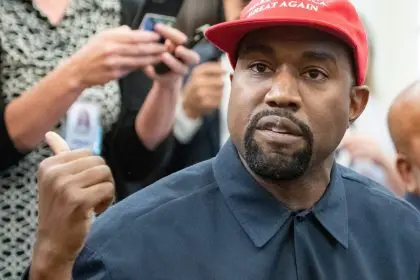
Chicago Ideas Week, a citywide event brought to fruition by one of GroupOn’s founding members Brad Keywell brought more than 100 speakers to Chicago to address a variety of topics.
The Debate: Too Many Kids Are Going to College
Tech entrepreneur, investor and philanthropist, Paypal co-founder, Peter Thiel, says too many kids are going to college.

“The question we want to push the other side back on a little bit is if education is an absolute good or absolute necessity, who is accountable if it is a mistake?” Thiel said. “And if these people are taking on these enormous debts are getting it wrong, where can they go to get a refund?”
1. A college education doesn’t make you more creative.
“The narrow technology context in Silicon Valley, that I saw so many very talented people who had not gone through college tracks and who had still done extraordinary well. In some ways, they were also more creative.”
2. College leaves graduates in great debt.
“Unlike the time when I went to college, the cost has gone up tremendously. The amount of debt that people leave college with have gone up tremendously. And so the choices are very different from the ones people had 25 years ago. College costs in nominal dollars have gone up by more than a factor of 10 since 1980. Even after inflation, it’s gone up by 300 percent. Costs about four times as much. Inflation adjusted to go to college now as it did 30 years ago, it’s gone up more than anything else in our society, more than health care, more than housing, more than any of a number of other things we think of as having been subject to runaway cost inflation and escalation.”
3. Higher education is important; job creation is even more important.
“When we say that education is important and paramount, that is true but it can also be a distortion and it can be a distraction from some of the very real problems we have as a society. We need to figure out how do we create more jobs, how do we create more good paying jobs. We don’t have enough of either in our society. And while education is linked to them, it’s not this absolute thing.”
Henry Bienen is president emeritus of Northwestern University, he says there are not too many kids going to college. “We cannot accept that too many kids go to college,” Bienen said. “In summary, those who go beyond secondary school are — not all kids. There are not too many of them. I’m not willing to consign them to low-level jobs.”

1. Policy shouldn’t be built on personal anecdotes of those who did not attend college.
“Social and economic policy should be informed by data and analysis, not anecdotal individual life histories, no matter how compelling. Most people are not Bill Gates or Steve Jobs. We should not misread particular circumstances at particular moments in time as an indication of likely long outcomes.”
2. Non-traditional students attend college to improve their careers.
“We need more, not fewer, college graduates. Going to college in the United States, by the way, means very different things. From two-year community colleges, flagship public research universities, small denominational colleges, elite privates, and for-profits.
By the way, at the for-profits, the average age of the students is 28, and these are not kids. Many of them are single mothers. Many are minorities. They don’t choose to attend such a place for a liberal arts education or because we have great athletic teams or a climbing wall. They come to improve their careers, their income, their life chances, and they do.”
3. Growth industries in the labor force demand post-secondary education.
“All the trend lines show a shift in the U.S. economy and its labor force towards more people requiring post-secondary education because growth industries require post-secondary education. We’ve hollowed out industrial jobs. The clear way to premium for college graduates is growing. It skyrocketed in the 1980s and 1990s. Advanced degree holders did vastly better, and their advantage continues to hold up. And by the way, for women, that wage premium is even higher than for men.”
Higher education doesn’t need to be abandoned however, primary education must be improved.
“We don’t have a vocational system like Switzerland or Germany. I’m not against building such a vocational system. I’d like to see more tracks that people can go to. But what we really need to do is do better in pre-K through 12.”
Debate Results:
Debate poll results: 47 percent of the audience said there are too many kids in college, 46 percent said there are not too many kids going to college; 7 percent were undecided. The debate was sponsored by Intelligence Squared Debates.
















